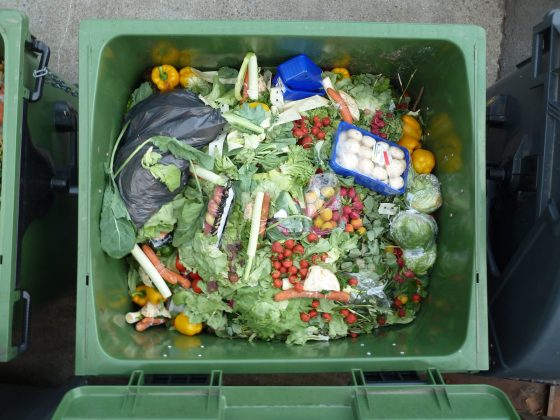Are you aware of the high cost of wasted food ? In 2021, $310 billion (not a typo) was spent on food that was wasted, most of which ended up in a landfill. But the cost of wasted food is not the only consideration. Food waste also contributes to climate crisis. When food waste is dumped in landfills, it releases methane gas, which is 80 times more harmful than CO2.

In Pennsylvania, the majority of food waste comes from residential homes. Other sources of food waste are restaurants, businesses, farms and schools. Check out this graph to learn more.
What about the EPA? Isn’t it monitoring methane emissions from landfills? Susan Thorneloe, a senior chemical engineer at the EPA who has worked on the agency’s methane estimation methods since the 1980s, says the Environmental Protection Agency has “been understating methane emissions from landfills by a factor of two.” Perhaps it’s time to talk to our legislators about regulating landfill emissions.

Home composting-a better way
When we throw our food scraps into the trash can, we are wasting a valuable resource. Instead of tossing it in the trash, use food waste to make compost. Veggie and fruit scraps can go into the compost bin, but not bones, meat, fish, dairy, fat, or oil. That rich compost adds nutrients to the soil and helps reduce the need for synthetic fertilizers. Compost is called black gold, because it is so much better than synthetic fertilizers for home veggie gardens and the environment.
Composting is easy. I have been using a compost bin for over 30 years and have never had a problem with odor or rodents. I use shredded leaves for brown material. I never have to put any effort into composting, because my bin does all the work. I use finished compost in my veggie/herb garden.

What you can do
- Learn to compost
- Compost your food scraps or use a composting service like Rot Star or My Kitchen Harvest
- Read this blog on how to reduce food waste.
- Learn how landfills affect climate.
- Ask your legislators for stronger landfill emissions regulations.
- For ideas on how to make a difference in your community, check out Michigan’s make food not waste program.
- Listen to Climate One’s podcast on food waste.



Leave a Reply